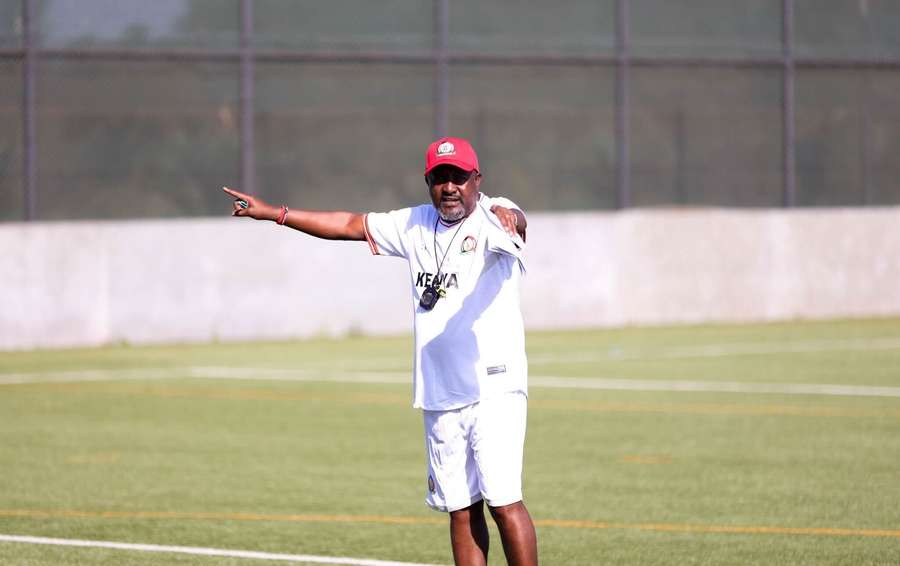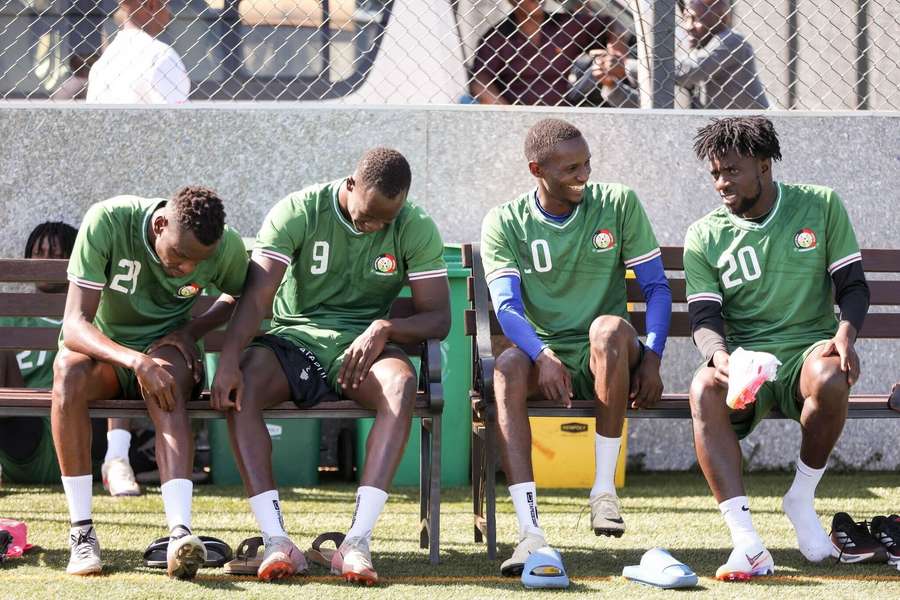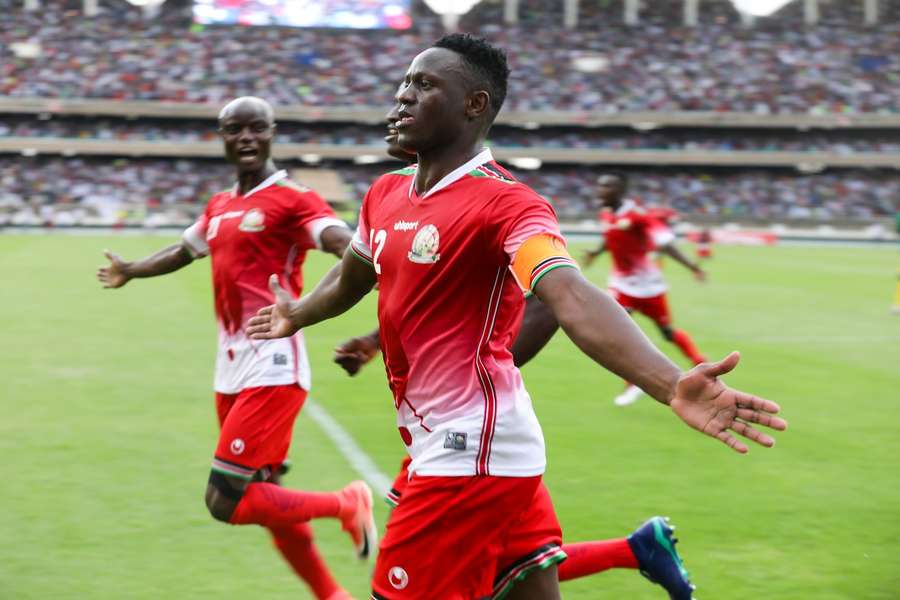Atieno, who was born in Brixton, England to Kenyan parents but made a decision to play for Harambee Stars, further said Kenyan football is at a massive crossroads and if nothing is done, the country will never see another Victor Wanyama.
Atieno’s sentiments come a few months after Harambee Stars failed to qualify for the 2025 Africa Cup of Nations (AFCON) tournament in Morocco. Playing in Group J, Kenya finished third, with leaders Cameroon and second-placed Zimbabwe sealing spots in the 35th edition of the tournament organised by the Confederation of African Football (CAF).
Out of the six matches played, Kenya managed only one win – 2-1 against Namibia - three draws and two defeats. Despite a good start, the back-to-back defeats against the Indomitable Lions sealed their fate.
The outcome saw Kenya part ways with coach Engin Firat and the return of Francis Kimanzi on an interim basis. Kimanzi, who is making his fourth stint with the national team, will be assisted by Zedekiah ‘Zico’ Otieno and John Kamau.

Kenyan football at a massive crossroads
According to Atieno, who made his first appearance for Harambee Stars in June 2009, something drastic needs to be done to make Kenyan football sustainable.
“Kenyan football is at a massive crossroads. It cannot continue down this path. To make football sustainable, something drastic must change. Otherwise, we may never see another Victor Wanyama not because he’s not there but because he wasn’t coached or trained in the right environment,” Atieno, who represented Kenya in the qualifiers for the FIFA World Cup 2010 and the African Cup of Nations (AFCON), told Flaschscore.
“Recently, I was watching the attached YouTube highlights of my former teammate Victor (Wanyama), what a player! A fast, strong, combative box-to-box midfielder who scored his fair share of goals. I shared his highlights from Celtic with investors to showcase the incredible talent Kenya has to offer. The recurring question is: Where is the next one? And honestly, it’s a fair question.”
“Over the past 25 years, players like Dennis Oliech, Victor Wanyama, and Macdonald Mariga have risen from Kenya to compete in top leagues with combined transfers of €50m euros. But with a population of 55 million, shouldn’t we be producing far more?
“With all due respect to today’s Kenyan players, we’re either coaching talent out of the game or losing them to other careers in the military, police, or elsewhere. Because I often see Kenyan soldiers or police officers and think: You could have been the next Victor Wanyama, Patrick Vieira, Yaya Toure, or Didier Drogba. Many are built like trains!”

Atieno, who played in the Football League for Walsall, Rochdale, Chester City, Darlington, Torquay United and Barnet and in the USL First Division for the Puerto Rico Islanders and Rochester Rhinos before hanging his boots, further blamed Kenya’s football problems on a lack of sports infrastructure.
“In the past seven years, I’ve visited 20 or so counties across Kenya, and what I discovered was eye-opening. We have hundreds of thousands (if not millions) of boys and girls with extraordinary athletic potential. Yet, most attend schools with inadequate - or non-existent - sports facilities,” explained Atieno, whose first game for Kenya was against Mozambique in 2009.
“Take Nairobi, Kisumu, and Mombasa counties as examples. The sports infrastructure is severely lacking. New paddle courts aside, where are the five-a-side pitches, professional academies, Sunday leagues, and amateur leagues? Grassroots football has been neglected for the past 15 years.
“But why? Kenya’s GDP has grown significantly, and the data shows Kenyans love football and spend more time online than almost any other nation. So why has there been no meaningful investment?”
Kenyan Premier League lacks commercial branding
Atieno believes registering local clubs as companies will go a long way in uplifting the standards of the sport in the country.
“As I dug deeper, I realised many clubs are registered as societies or, if incorporated, are not formally named “Name Football Club Limited.” Why does this matter? Clubs like Manchester United Ltd, Arsenal FC Ltd, Liverpool FC Ltd, and Chelsea FC Ltd are all officially registered as companies. It’s not just for trademarks - it’s essential for the legal and administrative operations of professional clubs. Besides the lack of commercial branding, this explains why seasoned investors don’t take Kenyan Premier League clubs seriously,” offered Atieno.
“Through a documentary series we will show how players and coaches lack the financial support and resources to thrive. Clubs are poorly structured and not set up to attract investment. AFC Leopards, Gor Mahia, and Mathare United - none are incorporated as limited companies. The structure of our professional clubs is the core issue. It must be addressed to give parents, kids, fans, and investors the confidence to support Kenyan football.”
Atieno concluded: “Talent always rises to the top. Aside from Dennis (Oliech) and Victor (Wanyama), schools and tournaments won’t develop good players - they’ll only uncover them. At the moment, Kenya has a “mining” approach to football: we search for gems rather than investing in the development of professional football philosophies, coaches, and facilities.
“Tournaments and programmes like Talanta Hela cannot sustain themselves or create a pipeline for nurturing talent. This can only be achieved through professional football clubs that are structured for long-term investment. Developing talent is expensive and requires genuine football expertise - something that doesn’t exist within governments or corporate sponsors.”


